- Home
- Robin Cook
Viral Page 27
Viral Read online
Page 27
“Oh, my goodness,” Camila said. “That’s right. I’ll hurry with Juliette.”
“Don’t rush!” he said. “Let Juliette enjoy her belated breakfast. I’m delighted she’s hungry, and to be truthful, I’m not sure what I want to do at this point.”
Once in the house, Brian went to the office. He knew he had to contact his mother, but he hesitated. It was now 12:20 p.m., and he imagined the interment was in progress, meaning even if he tried to rush out to Woodlawn Cemetery, he had probably missed the ceremony. He felt fairly guilty and worried that he’d let Hannah down, yet Juliette’s well-being was far more important to him than his sense of responsibility to his in-laws. Besides, he had to admit that he felt relieved not to have witnessed the stark reality of putting Emma’s body in the ground.
Instead of making a mad dash to the cemetery or even calling Aimée, he sat down at his desk and used a letter opener to get at the contents of the manila folder Grady had brought over. After he and Jeanne had seen on the internet the huge number of people the Manhattan Memorial Hospital had sued or was suing in the metropolitan area, he wasn’t totally surprised the list comprised hundreds of Inwood residents whom Grady had served. Having spent his entire life in the neighborhood, Brian fully expected there would be a number of people he knew personally. Sure enough, just with a random glance, he found Donavan Bligh’s name with an address on Indian Road, a ten-minute walk from where Brian was sitting. He knew the family because they had a son who’d been in his sister Erin’s class at P.S. 98 like Patrick McCarthy.
Although Brian was now more interested to help Jeanne learn the gory details of a number of the cases to hopefully motivate the media and maybe even the local politicians to do something, he slipped Grady’s list back into its envelope, and put it aside. He then got his phone out with the intention of calling Aimée, but still he hesitated. Instead of initiating the call, he put the phone down on the desk and stared at it. Not only did he feel guilty about missing the burial, but he also now worried about the possibility of his call coming at just the wrong time if the interment was still in progress. If that happened, he’d only be adding insult to injury. With that concern in mind, he wondered if he should wait just a little longer, or send her a text instead. He knew Aimée was expecting him to be in contact.
While Brian sat paralyzed by indecision, the phone suddenly rang with its raucous “old phone” ringtone, making him jump. In a kind of panic, he snapped it up to see who was calling. To his great irritation it was Roger Dalton. Recalling the anger the man’s phone call had incited the previous day, he debated whether to answer. He was already in a foul mood, and Roger Dalton, as the embodiment of MMH Inwood’s business tactics as well as Kelley’s sidekick, was fast becoming for him a persona non grata. Yet rationality intervened, making Brian again question whether he might be calling concerning Megan Doyle’s or Patrick McCarthy’s need to get a complete printout of Emma’s hospital bill. With that possibility in mind, he answered but quickly wished he hadn’t.
“This is rapidly becoming a farce,” Roger said without even identifying himself. “I don’t know why I’m making the effort to call you other than feeling some sympathy for what’s happening to your life. Another charge for which you are responsible was brought to my attention. Of course, I immediately sent it to Peerless Health, and in their usual rapid but disappointing way, they have refused any coverage. Ergo, if you don’t get them to reverse yet another denial, it will be added to your growing delinquency. Can I expect you to look into this quickly and get back to me?”
For a moment Brian struggled to control an almost overwhelming vexation and didn’t answer immediately, partially because Roger Dalton had at least expressed an ounce of empathy. “Is this new charge for my daughter’s Emergency Department visit?”
“It is indeed,” Roger said.
“You are not talking about today, are you?”
“No, yesterday,” Roger said. “Did you return to the ED today?”
“Yes, I just got home. I was there all morning.”
“Oh, dear,” Roger said. “Well, that makes it more important to get in touch with your insurance company. Because your account is flagged, I’ll be hearing about a new charge probably this afternoon. Both these charges will be added to your default unless you would like to take care of these ED bills yourself. Is that a possibility?”
“How much is the charge?” he asked hesitantly. Since nothing had been done in the way of laboratory tests or imaging, he thought there was a possibility he could show some good faith, but it depended on the amount.
“Yesterday’s charge is $1,776.55,” Roger said. “We’d be happy to accept a check or credit card.”
“Wait a second!” Brian blurted. “That’s almost two thousand dollars! There must be some mistake. We had to wait for so long that my daughter’s symptoms disappeared, so nothing was done: no tests, no nothing. That’s impossible.”
“Quite the contrary,” Roger said. “The facility was used and the facility charge is a good portion of the bill. On top of that, your daughter was seen by a doctor, so there was a charge for that.”
“I have never even heard of a facility charge,” Brian said. “What the hell does that mean?”
“It means that everyone who is seen in the ED has to pay some costs involved in constructing and maintaining the whole facility and all its necessary equipment, including all the X-ray machines, MRIs, you name it.”
“How much was the facility fee?” he asked.
“Let me check,” Roger said. There was a brief pause before he added: “Eleven hundred dollars.”
“Good God! I’m being charged eleven hundred dollars for merely walking into the ED.”
“No, you are being charged eleven hundred dollars for your daughter to be seen, examined, and treated in a Trauma 1 facility.”
Brian tried to rein in his outrage. Instead he harkened back to the lecture Megan had given him about hospital-inflated charge master prices used to negotiate with the larger health insurance companies, but which Medicare didn’t pay. “If my daughter was on Medicare, how much would the facility fee be then?”
“That’s proprietary information,” Roger answered.
“Oh, come on, Roger,” Brian said. “I’m sure I could call Medicare and they would tell me. You expressed some sympathy for what I’m going through. Help me out here, so I can begin to understand what I’m up against. How much would Medicare pay? I won’t tell anyone you told me.” Brian rolled his eyes at his own falsity.
“It is true Medicare could tell you,” Roger admitted.
“There you go,” he said. “Save me the effort.”
“Somewhere in the three- to four-hundred-dollar range,” Roger said. “It depends on what part of the ED was actually used.”
“That’s quite a difference,” Brian responded, keeping his real thoughts to himself. “When we first met, you gave a lot of credit to Charles Kelley. Has he been involved with this facility charge situation?”
“Of course,” Roger said. “It’s a key element in his turning the hospital around financially.”
“Interesting,” Brian managed. Struggling to contain himself, he changed the subject. He knew it was a hopeless cause arguing about prices with the likes of Roger Dalton or finding fault with his CEO and hero. “Did Peerless give you any reason for denying the claim for my daughter’s ED visit?”
“No,” Roger said. “They rarely do. That’s for you to find out and try to rectify. What about this most recent ED bill? Do you want to use a credit card? I could take direct payment over the phone. It’s your choice.”
“I’ll call Peerless,” Brian said.
“Fine,” Roger said with irritation. “You do that.”
Without another word being spoken, he found that the call had been disconnected. Yesterday he’d hung up on Roger Dalton; today Roger Dalton had hung up on him.
&
nbsp; With his own anger and resentment mounting, Brian subjected himself once again to the frustration of calling Ebony Wilson. As he waited through the required hold music, he tried to imagine what reason Peerless was going to give for denying Juliette’s ED visit. He also marveled at what a nightmare American healthcare had become for himself, his family, and apparently for too many of his neighbors and friends. After this whole ordeal, he’d be happy to never have to speak with another healthcare representative again.
After more than a half hour, Ebony Wilson came on the line using her signature pleasant voice with its mildly southern accent.
“It’s Brian Murphy again,” he said in response to her initial scripted introduction. He then immediately rattled off his policy number without being asked and said he was again calling about a claim denial and wanted yet another explanation.
“Let me check for you,” she said cheerfully. If she’d been offended by his abrupt disconnect the day before or his current supercilious attitude, she didn’t let on. Brian assumed that she probably had to deal with a lot of angry people in her role as a claims adjustment supervisor of a company that made it a point to deny claims.
After less than five minutes of additional Muzak punishment she came back. “I see the latest claim was for Juliette Murphy at the MMH Inwood ED. Is this the claim you are inquiring about?”
“Yes,” he said. “Why was this one rejected, or are all claims automatically rejected?”
“Our adjusters are experienced, hardworking, and very qualified professionals,” Ebony said by rote, seemingly immune to Brian’s brashness. She then went on to say: “This claim was denied for two reasons. The first was because of a preexisting condition, which your policy does not cover.”
“What kind of preexisting condition?” he interjected with surprise.
“Serious prematurity,” she said. “The attending physician had noted that the child had been born at thirty weeks, weighing only two-and-a-half pounds, which required more than a month in the neonatal intensive care unit.”
“But that was four years ago,” Brian sputtered. “After the first year she caught up size-wise, and she’s been fine ever since.”
“Prematurity has lots of potential complications down the road, or so I’ve been told,” Ebony said. “Do you want to hear the second reason?”
“I’m not so sure . . .”
“The visit was in the middle of the day at a Trauma 1 Emergency Department,” she continued. “Your daughter should have been seen by her pediatrician or an urgent-care center.”
“I called the pediatrician’s office and was advised to take my daughter to the MMH Inwood ED,” Brian argued. “I was following doctor’s orders.”
“We here at Peerless take our responsibility of reducing healthcare costs very seriously,” Ebony said. “That means encouraging people to use lower-cost alternatives.”
“I’ve heard this argument from you already,” he snapped. He could feel his pulse pounding in his ears.
“Again, if you don’t like our adjusters’ decisions you have the right to resubmit the claim and request a review or . . .”
“Or I can sue,” Brian said, filling in the rest.
“That is correct, and thank you for being a Peerless Health Insurance customer,” Ebony finished, again by rote.
Without another word and infuriated by the call, he disconnected and, like yesterday, immediately charged down the cellar steps and hurried into the small basement workout room. Using the same forty-five-pound weights, he quickly exhausted himself. Brian had always been a physical and mildly self-righteous person whose first instinct when attacked or wronged was to strike out. With his size, strength, and agility, he’d had to learn to suppress such urges, using sports as a release. When competitive athletics wasn’t available, barbells or strenuous cardio activity would suffice.
Ten minutes later and feeling moderately under control, he returned upstairs and sat back down at his desk. Looking at the phone lying on the blotter, he again debated getting in touch with Aimée. He knew he should, but when he picked up the phone, he still didn’t call his mother. Instead, he called Jeanne, more for moral support than anything else, although he planned on using the Grady material as an excuse.
Again the phone rang more times than he would have liked, and he felt guilty about calling her so much. As he was thinking about what voice message to leave and whether to leave any, she answered. It was clear she was out of breath.
“Am I catching you out on your bike again?” he asked, hearing what he thought was the sound of wind in the background.
“You are,” Jeanne admitted. “Sorry. I had to get the phone out, this time from my backpack.”
“No reason to apologize,” Brian said. “I should be the one apologizing for interrupting your ride again. Are you back in the park?”
“I am, but now I’m riding along the Hudson River, and it’s beautiful. I wanted to get out and get some exercise. What about Juliette? How is she? What did the doctor find this morning?”
“Once again they found nothing, and she’s remarkably improved despite the 102.2 fever and multiple complaints when she woke up. And once again, they did absolutely nothing despite us again waiting more than three hours. I can’t help but feel it was a deliberate slight, same as I did yesterday. Anyway, by the time she was seen, her fever was gone, same with her sore throat. I don’t know about the headache. They said she was fine, thought her complaints were all psychosomatic, and recommended a social worker should her symptoms come back.”
“Did they run any tests this time to be sure?”
“None, even though I made a big stink,” Brian said. “No matter what I said, the doctor refused. I know you might think I’m being paranoid, but I really do think it is all about the money. I’m sorry, but having to wait more than three hours two days in a row and refusing to do any tests, even a simple blood test, has to be deliberate. It can’t be a coincidence.”
“There’s no way to know,” Jeanne said.
“True, but it’s my gut feeling,” Brian insisted. “The doctor tried to tell me some bull about him not knowing anything about the business side of the hospital, but he has to know. They all have to know. I wouldn’t be surprised if the chief medical officer was on their backs all the time with the way that my hospital account manager carries on about the cost of running the Emergency Department. My guess is that Kelley is watching every penny they spend in the ED to make sure it’s a money-making venture.”
“You’re probably right.”
“Speaking of my hospital account manager, I had to have yet another phone conversation with him a little while ago that was as maddening as ever,” Brian said. “Then of course I had to talk again to the Peerless claims adjustment supervisor, which was equally as infuriating. It never ends, but I’ll tell you the gory details later.”
“Oh, my,” Jeanne said with sympathy. “What a day you are having.”
“Well, at least Juliette’s feeling better than when she awoke,” Brian said. “She even said she was hungry when we got home.”
“That’s good to hear,” she said. “I hate to ask, but what about the funeral services for your wife? Were they postponed?”
“I wish,” he responded. “I’m afraid Juliette and I missed both the mass and the burial. We went to the hospital early enough that I thought we’d be back in plenty of time. It’s unfortunate that didn’t happen thanks to the damn ED, but what could I do? Juliette’s fever of over 102 had to take precedence even though it spontaneously resolved. I know my mother will understand, and I just hope Emma’s mother does, too.”
“I’m so sorry,” Jeanne said. “You poor man. You have so much on your plate.”
“There is a bit of good news,” Brian interjected to change the subject. “Grady delivered, as I was confident he would. I have his service list, and it’s going to make our investigation eas
y now that we have hundreds of Inwood names and addresses.”
“Terrific,” Jeanne exclaimed. “I’m excited to get on with that. The more I think about it, the more important I believe exposing all of this is. Someone has to do it.”
“Are you still planning on coming over this afternoon to spend time with Juliette?”
“Absolutely! I’m looking forward to it,” she said. “That’s why I wanted to get some exercise in this morning. What about you? Are you still planning on visiting the ESU Academy?”
“I am,” Brian admitted. “With all this extra stress, I’m looking forward to it even more. I’ll be leaving soon for a three o’clock meeting, and hope I, too, can get in some exercise while I’m there. It would do wonders for my psyche.”
“I have a confession to make,” Jeanne said. “Last night I googled NYPD ESU, and I have to say, I was really impressed. Kudos to you and your wife. The training you guys went through is intense. I had no idea. You put your life on the line, literally. Have you really rappelled down skyscrapers and out of helicopters?”
“That and more,” Brian answered with a bit of pride, although he was usually more self-effacing.
“I’m truly impressed,” Jeanne said. “In French we say ‘très impressionné.’ ”
He laughed in spite of himself. “Je me rappelle the expression.”
“I’m not sure I’ll see you before you leave,” she said. “I’ve got to bike home and shower. But I’ll see you when you get back. Try to enjoy yourself!”
“Merci beaucoup,” Brian said. He then disconnected before bringing up Aimée’s number.
CHAPTER 31
September 2
The mere act of driving out onto the Floyd Bennett Field in the southeastern part of Brooklyn was therapeutic for Brian. He’d not been there for almost a year and had forgotten the effect of the huge expanse of 1,300 acres of mostly grassland, pristine salt marshes, and five enormous, decaying runways all within the confines of New York City. He knew something of the history of the place, as did all ESU officers who spent eight months training at the school. It had been a commercial airport in its early life but then was taken over by the federal government in World War II to be used mostly as a Naval Air station and a Coast Guard facility. It was now primarily administered by the National Park Service. The NYPD had used a small portion of the eastern part of the field as far back as 1934 for an aviation unit, which was still the case. The Emergency Service Unit’s headquarters and academy were also positioned there a bit later in four recycled Coast Guard buildings immediately adjacent to the aviation facility.

 Shock
Shock Mutation
Mutation Chromosome 6
Chromosome 6 Brain
Brain Intervention
Intervention Invasion
Invasion The Legend of Parzival: The Epic Story of His Quest for the Grail
The Legend of Parzival: The Epic Story of His Quest for the Grail Acceptable Risk
Acceptable Risk Cell
Cell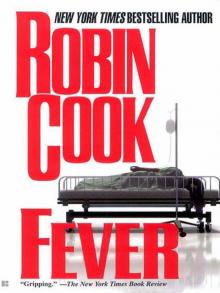 Fever
Fever Death Benefit
Death Benefit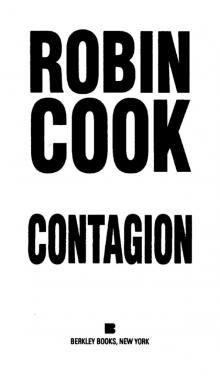 Contagion
Contagion Mindbend
Mindbend Coma
Coma Vital Signs
Vital Signs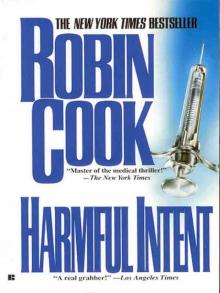 Harmful Intent
Harmful Intent Critical
Critical Foreign Body
Foreign Body Marker
Marker Blindsight
Blindsight Terminal
Terminal Sphinx
Sphinx Fatal Cure
Fatal Cure Host
Host Charlatans
Charlatans Crisis
Crisis Vector
Vector Toxin
Toxin Abduction
Abduction Viral
Viral Pandemic
Pandemic Outbreak
Outbreak Vector js&lm-4
Vector js&lm-4 Godplayer
Godplayer A Brain
A Brain Year of the Intern
Year of the Intern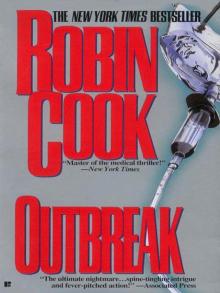 Outbreak dmb-1
Outbreak dmb-1 Cure
Cure Mortal Fear
Mortal Fear The Legend of Parzival
The Legend of Parzival Vital Signs dmb-2
Vital Signs dmb-2 Cure (2010) sam-10
Cure (2010) sam-10 Blindsight sam-1
Blindsight sam-1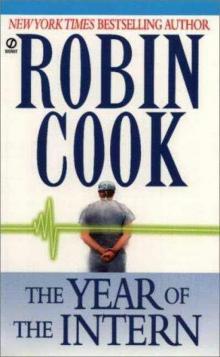 The Year of the Intern
The Year of the Intern Intervention sam-9
Intervention sam-9 Foreign Body sam-8
Foreign Body sam-8